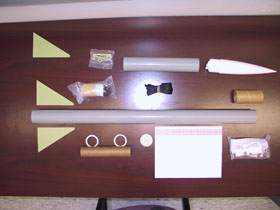
A Little Background
E80, Experimental Engineering, is an essential part of the engineering curriculum at Harvey Mudd College, and has been offered as a course for more than six years. Its predecessor, E54, with more experiments, but without a field experience, was offered for more than 20 years. Experimental Engineering is a sophomore-level, semester-long required course, involving multiple experiments covering a number of engineering disciplines. The primary purpose of the course is to teach basic instrumentation and measurement techniques; good lab notebook (now lab report practice, we ended lab notebook use and went to electronic reports in 2012) practice; technical report writing; analysis and presentation of data; the usage of experimental results for engineering design purposes; and the beginnings of professional practice. The last major pedagogical revision of the course in 2000 (with the number change from E54 to E80) involved the addition of a significant field experiment component: the instrumentation of a freeway overpass; the acquisition of the vibration data of the structure; and subsequent analysis of the vibration mode shapes of the structure. As part of the modification, the students were required to present their field data and subsequent analysis, and undergo an oral examination. The course has been wildly successful in educating students in many aspects of professional engineering practice.
The Next Step
We are taking the lessons learned from the previous incarnations of the Engineering Laboratory and changing the focus of the course in order to provide a thread of continuity between experiments with an integrative and unifying purpose. A key element of the philosophy of the Harvey Mudd College General Engineering education is that there are fundamental principles that are applicable to many engineering disciplines. However, in previous versions of the Engineering Laboratory, students sometimes felt they were taught a wide range of subjects in the Experimental Engineering course, but that the course lacked a connecting thread or purpose. We are redesigning the Experimental Engineering course to explicitly require learning in multiple disciplines but are directing all of the experiments to a final goal: to build, instrument, and fly a small rocket; and analyze and report on the data collected during the flight.
This Is Why
E80 has assessment material going back six years. For the first five years there were six rubric assessments and one student survey. The first rubric assessed team dynamics, experimental organization, troubleshooting, and experimental technique for the first lab module. The second assessed group dynamics, comprehensive thinking, experimental organization, group understanding, experimental methods, and pre-lab understanding. The third assessed a student-written technical memorandum for clarity/organization, presentation of data, and engineering judgment. The fourth assessed their field-test plan. The fifth assessed their field technique. The sixth assessed their oral presentation of their field results. These rubric assessments showed major improvement in experimental skills and engineering judgment and moderate improvement in technical writing, oral presentation, and team dynamics. In the survey the students rated themselves as showing a 50-to-60 percent increase in both experimental skills and engineering judgment. Overall, the course has been moderately-to-wildly successful in achieving its course goals with respect to experimental technique and professional practice.
One area assessed by students as less than successful was seeing the relevance of the laboratory experiments to each other and to the field experiment. The students had been able to make the connection with the lab beam-vibration experiment and the field bridge-vibration experiment, but not with the other experiments. We made the latest revision to E80, where all of the experiments have a much closer connection to the field experience, to address this aspect of the course while not harming the positive aspect of the course already in place.
We now have one semester of assessment data for the pre-pilot version of the course. The assessment data for this year include three surveys: pre-, mid-, and post-course, and four rubric assessments: laboratory technique, technical memorandum writing, oral presentation of the final project, and written presentation of the final project. We have not finished the analysis of the data yet, but preliminary results indicate that we have been successful in maintaining the successes of the earlier revision, while increasing the students' sense of connection among the different experiments and the different engineering disciplines. Another of the course goals that was addressed in the assessment is that of enthusing the students about this course, their chosen field, and the engineering curriculum, as well as motivating them to put in the necessary effort to learn the needed techniques and material. The preliminary analysis of the assessment data indicates that we have succeeded with this goal in spectacular fashion.


